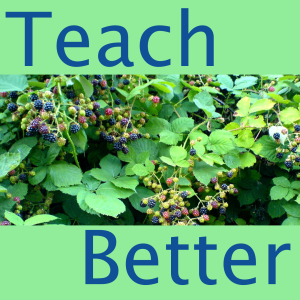
Podcast #23: The Students' Perspective with Maia Eliscovich-Sigal and Miguel Goncalves
 2015-12-14
2015-12-14
This episode is extra-special as we’re joined not by any faculty, but instead by Maia Eliscovich-Sigal and Miguel Goncalves. Maia is a senior economics major here at Yale and Miguel is a senior global affairs major. They give us the students’ perspective on their classes and tell us what they find works and doesn’t work when professors lecture, organize discussions, and use technology.
You can subscribe to the Teach Better Podcast through your favorite podcast app or simply subscribe through iTunes if you don’t have one yet.
Show Notes0:00 ⏯ Intro
1:48 ⏯ Maia comes from a small school and is happy to be a bit invisible freshman year.
2:32 ⏯ Miguel comes to college and finds a more intimate experience than high school.
6:41 ⏯ Feeling the imposter syndrome 30 years later.
7:44 ⏯ Trying to be a bit more careful in what you say when entering a new educational environment.
9:10 ⏯ Feeling like you’re inside an American movie. In college, professors may not remind you what’s due when. You get more practice in high school: In college you need to teach the material to yourself.
12:21 ⏯ First-year lecture classes can be a safe space where you won’t be publicly challenged.
14:58 ⏯ An effective lecture uses multiple, mutually-reinforcing methods during and after lecture.
18:30 ⏯ For Maia, a good lecture is not a just a summary. “I love it when they ban computers.”
22:00 ⏯ Professors get excited, and real experiences make the content more meaningful. Maia: lecturers need “a way with words,” but presentation slides can’t be all text. “If you’re just gonna read about your slide, don’t put it up.” A meaningful text is more valuable than a mere speech.
25:49 ⏯ Moving from abstract to concrete is difficult, but stories do that nimbly. Studying the Cold War with John Gaddis.
27:59 ⏯ What works in a good seminar? Maia says: people coming at the ideas from different perspectives.
30:20 ⏯ Seminars where instructors lead vs. seminars where students lead, formally or informally.
34:15 ⏯ Why it’s useful for students to answer each other’s questions.
36:04 ⏯ You don’t get promoted for listening. It’s so tempting just to tell people the answer rather than guiding. Students want to acquire the ability to give a good answer, not repeat the professor’s ideas.
38:14 ⏯ The Speed Round! Need group projects be awful? The positive elements of competition and peer support.
42:26 ⏯ When teamwork is good: taking different roles.
44:05 ⏯ Dear Professor: if you can’t use technology well, just skip it. The technology must be seamless. Powerpoint can be a necessity. Technology can also help you find out what helps you to learn.
47:34 ⏯ A chalkboard can be the optimal technology: go slow, show the process in real time.
49:41 ⏯ Mistakes made in learning? When your study method goes awry. Cold-calling can make the students believe knowing the answers is all that’s expected.
51:53 ⏯ Believing that reading over the problem sets was enough.
53:51 ⏯ Closing credits
Want to hear more from students? Check out Episode 9 with Sociology Professor Vida Maralani and two of her students, Dan Rubins and Avery Jones.
More Episodes
 2015-10-05
2015-10-05
Create your
podcast in
minutes
- Full-featured podcast site
- Unlimited storage and bandwidth
- Comprehensive podcast stats
- Distribute to Apple Podcasts, Spotify, and more
- Make money with your podcast
It is Free
- Privacy Policy
- Cookie Policy
- Terms of Use
- Consent Preferences
- Copyright © 2015-2024 Podbean.com




